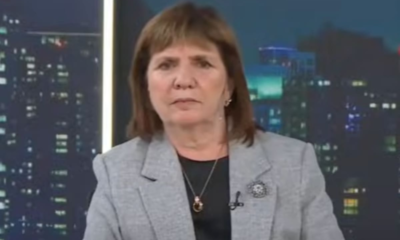INTERNACIONAL
Zohran Mamdani, el ex rapero musulmán nacido en Uganda y que se declara «socialista»: el demócrata que podría ser el próximo alcalde de Nueva York
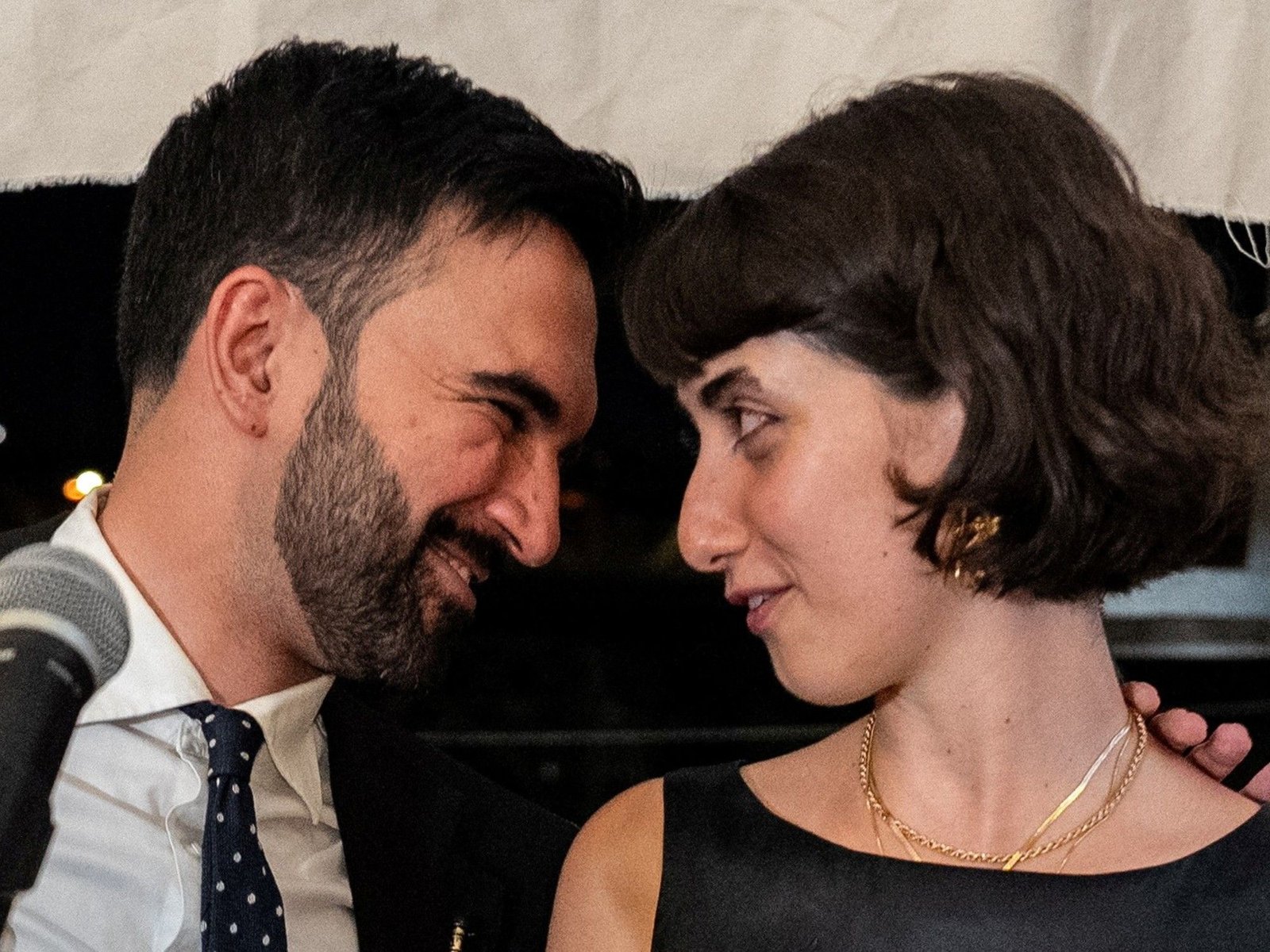
INTERNACIONAL
Un programa de televisión ayudó a identificar a una madre y su hija encontradas muertas en Roma

El parque más grande de Roma, Villa Doria Pamphilj, es una especie de refugio del bullicio y el caos ocasional de la ciudad, un lugar para corredores y excursionistas y para cualquier persona que busque un poco de naturaleza. El mes pasado, esa visión se destrozó con el descubrimiento de dos cuerpos: una niña pequeña y una mujer, desnudas, encontradas con pocas horas de diferencia en la maleza cercana a un extremo del parque.
Los investigadores estaban perplejos. No había documentos de identificación, y el cuerpo de la mujer estaba tan descompuesto que habría sido difícil que cualquier persona la identificara visualmente. De inmediato, el caso provocó titulares sensacionalistas en primera página: “Roma, horror en el parque, mujer y niña muertas”, decía uno de ellos, en el diario romano La Repubblica. Il Corriere della Sera, de Milán, lo llamó “un asesinato de novela policiaca en un parque de Roma”.
El país, enganchado; la policía, bajo presión.
Con pocas pistas, y un frenesí mediático en marcha, los investigadores dieron un paso inusual. Una portavoz apareció en un popular programa de televisión llamado Chi l’ha Visto? —o “¿Quién lo ha visto?”, en español— para pedir la ayuda del público.
Y los espectadores del programa, que busca a personas desaparecidas, hicieron lo que habían hecho durante 37 temporadas: buscaron pistas en sus recuerdos.
Lo único que tenía la policía era que la mujer tenía cuatro tatuajes visibles y que una autopsia preliminar había revelado que la niña era su hija. La gente que frecuentaba el parque recordaba haber visto a una mujer joven y a una niña que podían corresponder con esa descripción en compañía de un hombre.
Se empieza a develar una triste historia
Lo que se desarrolló, a lo largo de varios programas semanales, fue la triste historia del sueño roto de una joven rusa de crearse una vida en el extranjero. Con cada revelación, aumentaba el caché de Chi l’ha Visto?, así como las preguntas sobre la falta de intervención de la policía cuando los transeúntes preocupados la habían llamado por la pareja y la niña.
El primer avance se produjo pronto, cuando una telespectadora llamó al programa para decir que recientemente había presenciado en la calle un cuadro inquietante en el que estaban implicados un hombre, una mujer y una niña. El hombre sangraba por una herida en la cabeza, dijo, y se llamó a la policía.
Al revisar los registros de aquella noche, los investigadores vieron que, efectivamente, la policía había estado allí. El hombre tenía un pasaporte estadounidense con el nombre de Rexal Ford. Después de examinar los manifiestos de los aviones en busca de ese nombre, los investigadores vieron que el hombre había tomado un vuelo de Roma a Skiathos, Grecia, el 11 de junio. (Más tarde supieron a través del FBI que su verdadero nombre era Francis Charles Kaufmann).
Fue detenido en Skiathos el 13 de junio y posteriormente extraditado a Italia como sospechoso de matar a la niña, según la orden de arresto, aunque no se le han presentado cargos por ninguna de las dos muertes. El hombre fue fotografiado sosteniendo a la bebé niño el 5 de junio, dos días antes de que se encontraran los cuerpos (Imagen: Facebook/Chi l’ha visto?)
Durante una conferencia de prensa, Francesco Lo Voi, fiscal jefe de Roma, dio las gracias a Chi l’ha Visto? por haber proporcionado “una pista particularmente útil para las investigaciones” al ayudar a identificar a Kaufmann.
Quiénes son ellas
Aunque la policía tenía ahora un sospechoso, la mujer y la niña seguían sin ser identificadas. De nuevo, Chi l’ha Visto? proporcionó información crucial. Francesco Paolo Del Re, reportero del programa, se dirigió a la zona cercana a donde habían encontrado a Kaufmann sangrando. Interrogó a los comerciantes y se encontró con un portero que dijo que había llamado a la policía la noche en que encontraron al hombre sangrando. Describió al hombre como beligerante y dijo que había estado con una mujer y una niña pequeña.
También había tomado una foto de los tres. Ahora, por primera vez, había una foto de la mujer cuando aún estaba viva, una clave para identificarla. La primera imagen de la mujer desaparecida (Captura de video del programa)
Chi l’ha Visto? publicó la foto en su sitio web y esperó. Cinco días después, el 18 de junio, una mujer rusa se puso en contacto con el programa para decir que conocía a la madre de la mujer muerta. La madre le había pedido a la mujer, una amiga suya, que buscara noticias en internet después de días sin saber nada de su hija. La amiga buscó en internet a Rexal Ford, con quien sabía que la joven había mantenido una relación sentimental. Chi l’ha Visto? fue el primer resultado que apareció.
Mejor que el FBI
Federica Sciarelli, presentadora del programa y conocida personalidad, reconoció durante el programa siguiente que los telespectadores habían hecho posible que se identificara a la mujer muerta, otro momento clave en la investigación. “Lo digo con una sonrisa amarga, pero si los fiscales se apoyan en el FBI, nosotros nos apoyamos en ustedes, los telespectadores”, dijo. “Quiero darles las gracias porque son ustedes quienes hacen nuestro programa”.
La joven muerta, identificada por su madre, era Anastasia Trofimova, de 29 años, y la niña era su hija, Andromeda. En el programa, aparecieron varios testidos de situaciones de violencia (Captura de video)
La investigación sobre las dos muertes continúa, y Kaufmann se encuentra en la prisión Rebibbia de Roma. En una audiencia preliminar celebrada la semana pasada, ejerció su derecho a no responder a preguntas.
Su abogado no respondió a los numerosos intentos de contactarlo. Pero una activista de los derechos de los presos, Elisabetta Zamparutti, dijo en una entrevista telefónica que se había reunido con Kaufmann la semana pasada y que este le había dicho que era inocente.
A medida que se desarrollaba el caso, el programa de televisión trasladó al padre y a la madre de Anastasia desde Siberia a Roma. Se reunieron con los fiscales, y su madre, Tatiana Zemliakova, colocó un animal de peluche en un monumento en su memoria en el parque Villa Pamphilj.
El cuento de amor que terminó en horror
En el programa, Zemliakova contó parte de la historia de cómo su hija había llegado a Roma. Dijo que, cuando estaba de vacaciones en Malta en 2023, Anastasia había conocido a un hombre que dijo llamarse Rexal Ford. Anastasia regresó a Rusia, pero él le rogó que volviera a Malta, dijo Zemliakova, y Anastasia lo hizo.
En junio de 2024, dijo Zemliakova, la pareja tuvo a su hija, Andromeda. A finales de marzo, dejaron Malta y se mudaron a Roma.
Además de ser el principal sospechoso de la muerte de Andromeda, Kaufmann está acusado de ocultar el cuerpo de Anastasia, según Antonio Verdi, uno de los fiscales que investigan el caso. No se ha determinado la causa de la muerte de Anastasia; la niña fue estrangulada, según la orden de arresto contra Kaufmann.
Durante una rueda de prensa tras la detención de Kaufmann, otro fiscal, Giuseppe Cascini, dijo que la noche anterior al hallazgo de los cuerpos, Kaufmann fue visto en el parque sosteniendo el cuerpo inerte de una niña.
El programa que busca gente desde hace 36 años
Para Chi l’ha Visto? el caso ha sido absorbente, y ha sido el tema de los últimos cinco programas. En una entrevista, Sciarelli dijo: “Nunca insistiremos lo suficiente en la importancia de nuestros espectadores, que son como cámaras en cada calle”.
Desde su debut en 1989, según el programa, miles de personas han sido encontradas.
Cada semana, el programa comienza con varios casos urgentes, de personas que han desaparecido en los últimos días. Sciarelli muestra fotografías. Se entrevista a familiares o amigos.
Durante décadas, Chi l’ha Visto? ha creado una legión de devotos seguidores (captura de video)
Durante décadas, Chi l’ha Visto? ha creado una legión de devotos seguidores, con una audiencia promedio de 1,65 millones de espectadores a la semana, según Auditel, la agencia que mide la popularidad de la televisión italiana. El programa también tiene algunos detractores, entre ellos espectadores que lo acusan de ser excesivamente morboso.
Aunque Sciarelli es la cara del programa, los periodistas hacen el trabajo de campo mientras otros miembros del personal atienden las llamadas telefónicas, los correos electrónicos y los mensajes en las redes sociales.
Los ojos contra la policía
En el caso de Villa Pamphilj, las pistas de los telespectadores no solo han ayudado a la policía, sino que también han dado lugar a acusaciones de que fue demasiado arrogante y no investigó a fondo si Kaufmann suponía un riesgo para la mujer y la niña. Los reporteros del programa hablaron con personas que dijeron haber visto a Kaufmann actuar de forma agresiva o errática al menos en seis ocasiones. En algunos de esos casos se llamó a la policía, pero no se detuvo a Kaufmann.
Por ejemplo, una mujer dijo al programa que había llamado a la policía el 5 de junio tras ver a un hombre, que ella dijo que estaba ebrio, caminando por el centro de Roma con su hija en brazos. Dijo que se trataba de Kaufmann. En un video tomado desde un departamento y hecho público por primera vez en un programa de noticias nacional, se ve a varios policías al hablar con Kaufmann, quien les dice: “Soy un ciudadano estadounidense que pasea con mi hija”. Tras una breve discusión, la policía le permite marcharse. Cuando se descubrieron las muertes y se le identificó como sospechoso, la mujer llamó a Chi l’ha Visto? para quejarse y decir que la policía la había ignorado.
Tras una protesta pública contra la inacción de la policía, Roberto Massucci, jefe de la policía de Roma, acudió recientemente al programa para abordar los problemas de este caso. Dijo que los agentes que habían hablado con la pareja eran investigados cuidadosamente.
Chi l’ha Visto? está en una pausa de verano hasta septiembre, pero su redacción sigue activa y continúa recibiendo pistas incluso cuando la mayoría de los italianos están de vacaciones.
Por Elisabetta Povoledo, reportera radicada en Roma que cubre Italia, el Vaticano y la cultura de la región. Es periodista desde hace 35 años.
Italia, Roma, Crimen
INTERNACIONAL
Alina Habba defiant after judges vote against her in New Jersey: ‘I don’t cower to pressure’
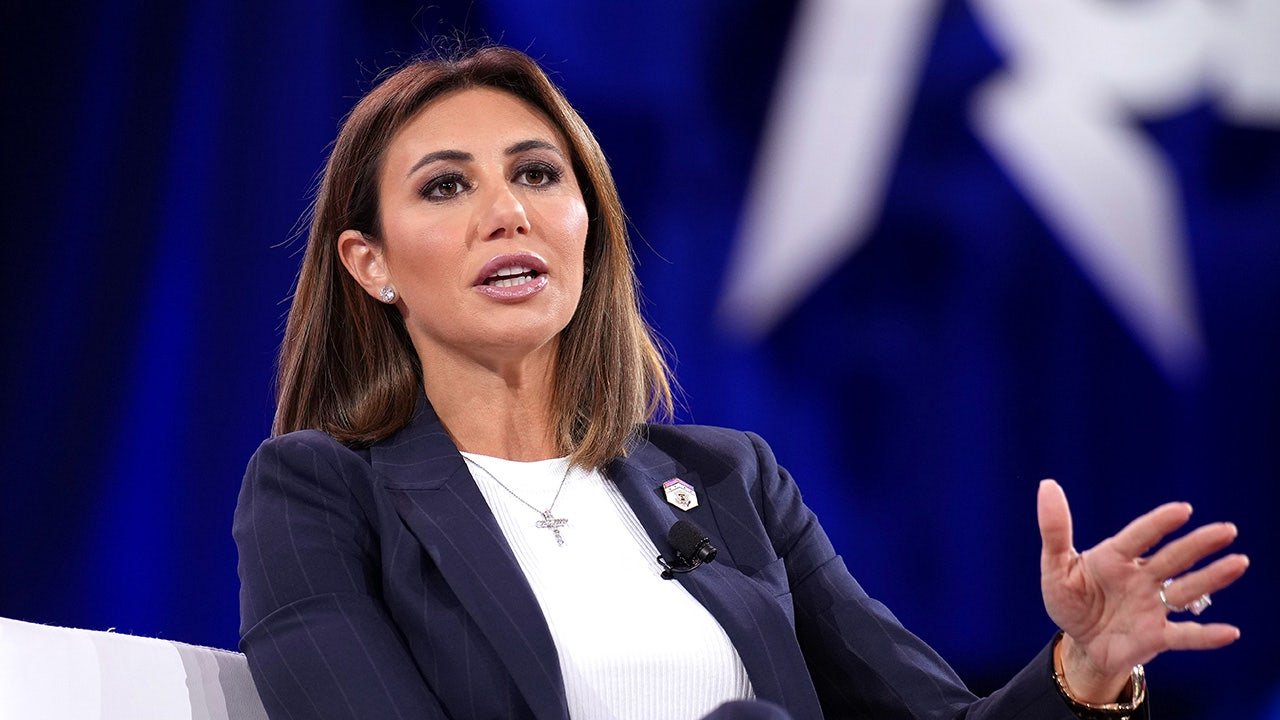
NEWYou can now listen to Fox News articles!
Alina Habba signaled Thursday that she does not plan to leave her role as the temporary U.S. attorney of New Jersey, announcing she does «not cower» to pressure after federal judges voted against extending her term.
Habba, a former personal defense attorney to President Donald Trump, wrote in a statement online that she has been appointed the «acting» U.S. attorney, a shift from her prior job title.
«Donald J. Trump is the 47th President. Pam Bondi is the Attorney General. And I am now the Acting United States Attorney for the District of New Jersey,» Habba wrote. «I don’t cower to pressure. I don’t answer to politics. This is a fight for justice. And I’m all in.»
A Department of Justice (DOJ) spokesman told Fox News Digital that Habba was now serving as the acting U.S. attorney, rather than the «interim» position that she previously held.
DOJ SWIFTLY FIRES ALINA HABBA’S COURT-APPOINTED REPLACEMENT
President Donald Trump stands alongside Alina Habba during her swearing-in ceremony as interim U.S. attorney for New Jersey at the White House on March 28, 2025. (Andrew Harnik/Getty Images)
The maneuvers by Trump and Attorney General Pam Bondi to keep Habba as the top federal prosecutor in New Jersey are governed by a set of arcane federal vacancy laws.
Those same laws also gave the New Jersey district court judges the authority to vote on whether to extend Habba’s 120-day term as interim U.S. attorney or to replace her. In a rare move, they chose to replace her with Habba’s No. 2, Desiree Grace, but Bondi promptly fired Grace, leaving open the question of who would take the role.
ALINA HABBA SAYS AMERICA WAS ‘OFF‑TRACK’ FOR A LONG TIME
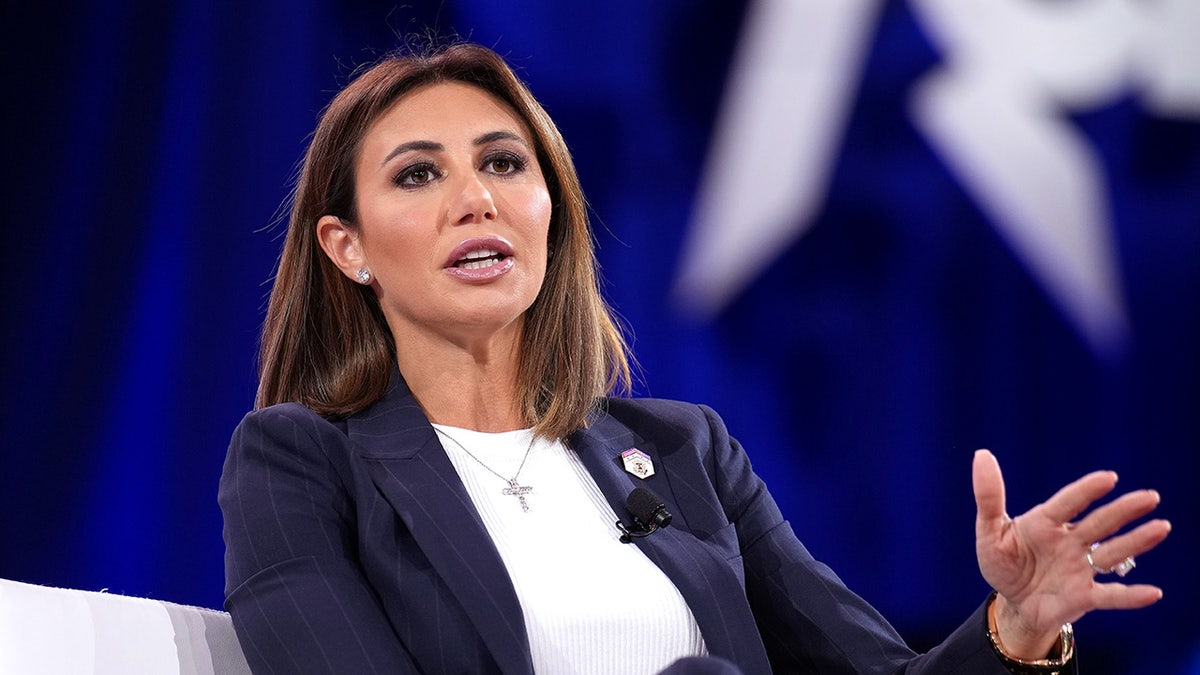
Alina Habba speaks during a panel at the 2025 Conservative Political Action Conference in Oxon Hill, Maryland. Habba, a former personal attorney to President Trump, is now serving as acting U.S. attorney for New Jersey. (Andrew Harnik/Getty Images)
The DOJ has said Habba’s term as «interim» U.S. attorney expires Friday. Fox News Digital learned that Habba resigned before that expiration day and that she was re-appointed as acting U.S. attorney, which has a 210-day term limit.
According to the judges’ appointment, Grace would take over come Saturday, but it is unclear if the judges’ vote is valid now given the changes to Habba’s job, and it is possible that the legal confusion could lead to a court fight.
Grace, a career prosecutor in the U.S. attorney’s office since 2016, wrote in a LinkedIn post after she was fired that it «has been the honor of a lifetime to represent the United States and to serve the people of New Jersey» and that she planned to be sworn in on Saturday.
WHITE HOUSE HITS BACK AT DEM MAYOR SUING US ATTORNEY AFTER ICE ARREST: ‘DESPERATE ATTEMPT’

Trump lawyer Alina Habba speaks at a campaign rally for former US President and Republican presidential candidate Donald Trump at the PPL Center in Allentown, Pennsylvania, on October 29, 2024. (Photo by ANGELA WEISS/AFP via Getty Images)
«Yesterday the District Judges for the District of New Jersey selected me to serve as the United States Attorney for the District of New Jersey,» Grace wrote. «It will forever be the greatest honor that they selected me on merit, and I’m prepared to follow that Order and begin to serve in accordance with the law.»
Trump has also nominated Habba to serve the full, four-year role as the permanent U.S. attorney, but that position requires Senate approval and Habba has no clear path to confirmation.
CLICK HERE TO GET THE FOX NEWS APP
New Jersey’s two Democratic senators, Sens. Cory Booker and Andy Kim, are currently holding up her nomination through the Senate’s «blue slip» tradition, and a person familiar with the matter said the Trump administration has not submitted any material for the Senate to vet Habba’s nomination in any case.
Booker said in a statement after Grace’s firing that the Trump administration has violated the law.
«The firing of a career public servant, lawfully appointed by the court, is another blatant attempt to intimidate anyone that doesn’t agree with them and undermine judicial independence,» Booker wrote on social media. «This Administration may not like the law, but they are not above it.»
Fox News’ David Spunt contributed to this report.
INTERNACIONAL
Alemania, Francia y Reino Unido retoman en Estambul las negociaciones nucleares con Irán
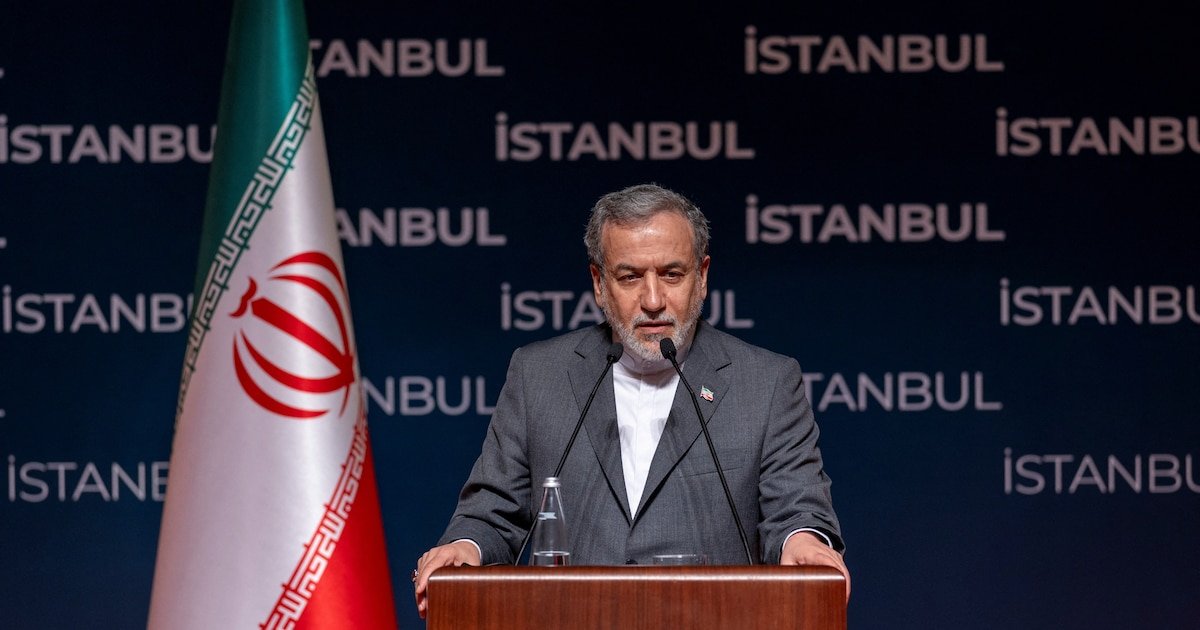
Representantes del régimen de Irán y de las potencias europeas conocidas como el E3 —Alemania, Francia y Reino Unido— se reunirán este viernes en Estambul para retomar las negociaciones nucleares interrumpidas tras el bombardeo estadounidense contra tres plantas atómicas de Teherán el pasado mes de junio.
El encuentro llega en un contexto marcado por amenazas de reinstaurar sanciones de Naciones Unidas bajo el mecanismo de “snapback”, contemplado en el acuerdo nuclear de 2015.
Las conversaciones serán las primeras desde el ataque israelí del 13 de junio, que provocó la muerte de altos mandos militares, científicos nucleares y cientos de civiles. Dos días después, se suspendieron las conversaciones previstas entre Irán y Estados Unidos, y posteriormente, el 22 de junio, Washington bombardeó instalaciones nucleares en Fordow, Isfahan y Natanz. Desde entonces, las tensiones se han intensificado.
La reunión en Estambul se celebra en medio de advertencias de los gobiernos europeos sobre la posibilidad de activar el “snapback” si no se logra un compromiso inmediato. Este mecanismo permitiría restablecer automáticamente las sanciones de la ONU que fueron levantadas en virtud del acuerdo nuclear de 2015. “Inacción por parte del E3 no es una opción”, señaló una fuente diplomática europea, citada por agencias internacionales. “Irán debe hacer gestos claros sobre su programa de enriquecimiento de uranio y su cooperación con el OIEA”.

El plazo para activar el snapback expira en octubre. Según la misma fuente, los países europeos están dispuestos a aplicar la medida “en ausencia de una solución negociada”.
Irán ha calificado cualquier intento de restablecer las sanciones como “ilegal”. Kazem Gharibabadi, viceministro de Relaciones Exteriores de Irán, que participará en las conversaciones junto al diplomático Majid Takht-Ravanchi, advirtió esta semana: “Activar sanciones es completamente ilegal. Hemos advertido de los riesgos, pero seguimos buscando un terreno común para gestionar esta situación”.
Gharibabadi también acusó a los gobiernos europeos de haber incumplido sus compromisos tras la salida unilateral de Estados Unidos del acuerdo, en 2018, bajo la presidencia de Donald Trump. Desde entonces, Irán ha revertido progresivamente sus compromisos nucleares, incluyendo límites al enriquecimiento de uranio.
Actualmente, según el Organismo Internacional de Energía Atómica (OIEA), Irán está enriqueciendo uranio hasta un 60 % de pureza, muy por encima del 3,67 % permitido en el acuerdo y cerca del nivel necesario para uso militar. Sin embargo, Teherán ha sostenido que no pretende fabricar armas nucleares y ha insistido en que su programa tiene fines pacíficos.

“Especialmente después de la reciente guerra, es importante que comprendan que la posición de la República Islámica de Irán sigue siendo firme”, declaró el canciller iraní Abbas Araghchi. “Nuestro enriquecimiento de uranio continuará. No renunciaremos a este derecho del pueblo iraní”.
No obstante, Araghchi reconoció que el enriquecimiento se encuentra actualmente suspendido debido a los daños sufridos durante los bombardeos de junio. “El daño a las instalaciones fue serio y severo”, afirmó.
En paralelo, Irán ha suspendido la cooperación con el OIEA y retiró a los inspectores internacionales del país. Las autoridades iraníes acusan al organismo de actuar con parcialidad y no haber condenado los ataques contra sus instalaciones. Se espera que una misión técnica del OIEA regrese en las próximas semanas, tras declaraciones del régimen iraní sobre una futura cooperación “en una nueva forma”.

Mientras tanto, Israel ha advertido que podría reanudar sus operaciones militares si Irán reconstruye sus instalaciones o da señales de avanzar hacia una capacidad nuclear armamentística. Teherán ha respondido que cualquier nuevo ataque recibirá una “respuesta dura”.
Las conversaciones de este viernes serán clave para determinar si aún existe espacio para un acuerdo diplomático que evite un nuevo aislamiento internacional de Irán y frene una posible escalada militar en la región. Los europeos buscan salvar los últimos elementos funcionales del acuerdo de 2015 antes de que se agote el margen de maniobra diplomático en otoño.
(Con información de AFP)
Diplomacy / Foreign Policy,Europe,Middle East,Military Conflicts,ISTANBUL

 ECONOMIA3 días ago
ECONOMIA3 días agoEl consumo en Argentina crece 4% en junio, ante menor inflación y más crédito

 POLITICA2 días ago
POLITICA2 días agoMáximo Kirchner declaró una fortuna de 8.300 millones de pesos: representa un 76% más que el año anterior

 CHIMENTOS3 días ago
CHIMENTOS3 días agoEl desgarrador testimonio del hermano de Locomotora Oliveras: “El daño es irreversible, solo puede vivir con respirador”

















